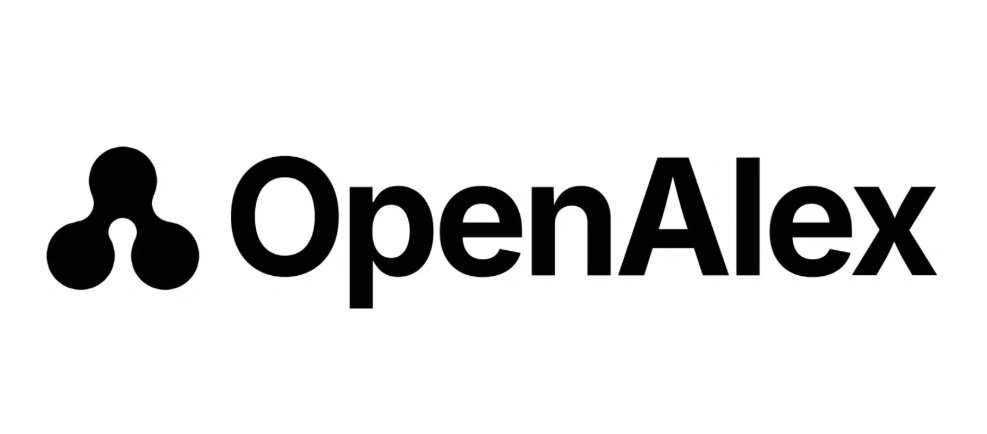Análise de metodologias ativas em ambientes virtuais de aprendizado
DOI:
https://doi.org/10.47236/2594-7036.2025.v9.1549Palavras-chave:
Ambiente virtual, Bibliometria, Metodologias ativas, Plataforma de ensino, Revisão sistemática da literaturaResumo
A educação vem sofrendo modificações devido à inserção da tecnologia da informação na rotina da sociedade, e os ambientes virtuais de aprendizagem (AVA) surgem como ferramentas essenciais de disponibilização e organização de materiais e interação entre professor, tutor e aluno. As metodologias ativas vêm com intuito de colocar o aluno como protagonista no processo de desenvolvimento do conhecimento, além de estimular o pensamento crítico e criativo. Logo, tal pesquisa tem como objetivo fornecer uma revisão sistemática da literatura (RSL) para identificação das metodologias ativas aplicadas nos AVA, possibilitando o direcionamento de novas pesquisas relacionadas ao tema e a identificação das lacunas na literatura. Como metodologia, foi utilizada uma RSL com buscas na base Scopus, além da utilização do Mendeley Desktop e VOSviewer. Como resultado, tem-se que as pesquisas recentes que integram metodologias ativas e AVA envolvem aprendizagem por meio de jogos (game-based learning – GBL), aprendizagem em equipe (team-based learning – TBL), sala de aula invertida (flipped classroom – FC) e aprendizagem baseada em projetos (project-based learning – PBL) no nível superior, e a plataforma mais utilizada é o Moodle. Identificou-se a aplicação de duas metodologias que são pouco discutidas na literatura: teoria do aprendizado experimental (experiential learning theory – ELT) e passivo, ativo, construtivo e interativo (interactive, constructive, active, passive – ICAP). O distanciamento social foi um fator recorrente na motivação da aplicação das metodologias ativas nos AVA. E, como trabalhos futuros, sugere-se a ampliação das bases de artigos científicos a serem exploradas.Downloads
Métricas
Referências
ARAÚJO, E. V. F. de. Internet, hipertexto e gêneros digitais: novas possibilidades de interação. In: CONGRESSO NACIONAL DE LINGUÍSTICA E FILOLOGIA, 15., 2011, Rio de Janeiro. Cadernos [...]. Rio de Janeiro: CiFEFiL, 2011. v. 15, n. 5, t. 1, p. 633-639. Disponível em: http://www.filologia.org.br/xv_cnlf/tomo_1/55.pdf. Acesso em: 20 nov. 2019.
BES, P. et al. Metodologias para aprendizagem ativa [E-book]. [S. l.]: Grupo A, 2019. Disponível em: https://integrada.minhabiblioteca.com.br/#/books/9788595029330/. Acesso em: 4 nov. 2023. ISBN 9788595029330.
BROWN, A. Engaging students as partners in developing online learning and feedback activities for first-year fluid mechanics. European Journal of Engineering Education, v. 43, n. 1, p. 26-39, 2018. DOI: https://doi.org/10.1080/03043797.2016.1232372
CABERO-ALMENARA, J.; ARANCIBIA, M.; DEL PRETE, A. Technical and didactic knowledge of the Moodle LMS in higher education. Beyond functional use. Journal of New Approaches in Educational Research (NAER Journal), v. 8, n. 1, p. 25-33, 2019. DOI: https://doi.org/10.7821/naer.2019.1.327
CHANDRASEKARAN, S.; THIRUNAVUKKARASU, G. S.; LITTLEFAIR, G. Collaborative learning experience of students in distance education. In: INTERNATIONAL SYMPOSIUM ON PROJECT APPROACHES IN ENGINEERING EDUCATION AND ACTIVE LEARNING IN ENGINEERING EDUCATION WORKSHOP, [S. l.], 2016. Conference […]. [S. l.]: [s. n.], 2016. p. 90-99.
CHI, M. T. H. et al. Translating the ICAP theory of cognitive engagement into practice. Cognitive Science, v. 42, n. 6, p. 1777-1832, 2018. DOI: https://doi.org/10.1111/cogs.12626
CHRISTIANSON, A. M. Using socrative online polls for active learning in the remote classroom. Journal of Chemical Education, v. 97, n. 9, p. 2701-2705, 2020. DOI: https://doi.org/10.1021/acs.jchemed.0c00737
DALAL, A. R.; JOY‐THOMAS, A. R.; QUOCK, R. L. Effect of shift to virtual teaching on active learning: a snapshot. Journal of Dental Education, v. 86, n. 8, p. 976-989, 2022. DOI: https://doi.org/10.1002/jdd.12910
DHOLAKIYA, N. D. et al. Virtual learning for safety, why not a smartphone? Process Safety Progress, v. 38, n. 2, p. e12005, 2019. DOI: https://doi.org/10.1002/prs.12005
DRESCH, A.; LACERDA, D. P.; ANTUNES, J. Design science research: método de pesquisa para o avanço da ciência e tecnologia. Porto Alegre: Bookman, 2015. xxii, 181 p. DOI: https://doi.org/10.1007/978-3-319-07374-3
DUCK, A. A.; STEWART, M. W. A pedagogical redesign for online pathophysiology. Teaching and Learning in Nursing, v. 16, n. 4, p. 362-364, 2021. DOI: https://doi.org/10.1016/j.teln.2021.04.005
EUGÊNIO, J. C.; PEREIRA, N. L.; LUNARDI, G. M. Tecnologias da informação e comunicação e metodologia ativa na formação continuada do policial civil de Santa Catarina. [S. l.]: [s. n.], 2023. DOI: https://doi.org/10.31412/rbcp.v14i12.1027
GALVÃO, M. C. B.; RICARTE, I. L. M. Revisão sistemática da literatura: conceituação, produção e publicação. Logeion: Filosofia da Informação, v. 6, n. 1, p. 57-73, 2019. DOI: https://doi.org/10.21728/logeion.2019v6n1.p57-73
HITE, R. L.; JONES, M. G.; CHILDERS, G. M. Classifying and modeling secondary students’ active learning in a virtual learning environment through generated questions. Computers & Education, v. 208, p. 104940, 2023. DOI: https://doi.org/10.1016/j.compedu.2023.104940
KANE, L. Educators, learners and active learning methodologies. International Journal of Lifelong Education, v. 23, n. 3, p. 275-286, 2004. DOI: https://doi.org/10.1080/0260/37042000229237
KENSKI, V. M. Tecnologias e tempo docente. Campinas: Papirus, 2013.
KOLB, Alice Y.; KOLB, David A. Experiential learning theory: a dynamic, holistic approach to management learning, education and development. The SAGE Handbook of Management Learning, Education and Development, v. 7, n. 2, p. 42-68, 2009. DOI: https://doi.org/10.4135/9780857021038.n3
LEITE, L. S.; RAMOS, M. B. A metodologia ativa no ambiente virtual de aprendizagem: metodologia ativa na educação. [S. l.]: Pimenta Cultural, 2017. p. 85-101.
LIU, W. et al. Blended teaching practices for active learning in higher pharmacy education. Indian J. Pharm. Educ. Res, v. 55, p. 655-663, 2021. DOI: https://doi.org/10.5530/ijper.55.3.137
MARTÍN, C. T. et al. Impact on the virtual learning environment due to covid-19. Sustainability, v. 13, p. 582, 2021. DOI: https://doi.org/10.3390/su13020582
MUNHOZ, A. S. Projeto instrucional para ambientes virtuais. Minha Biblioteca. [S. l.]: Cengage Learning Brasil, 2016.
NEUMANN, S. E.; BORELLI, V. A.; OLEA P. M. Aprendizagem baseada em projetos no curso de administração: um estudo de caso em uma instituição de ensino da Serra Gaúcha. In: MOSTRA DE INICIAÇÃO CIENTÍFICA, PÓS-GRADUAÇÃO, PESQUISA E EXTENSÃO, 16., out. 2016, Caxias do Sul. Anais [...]. Caxias do Sul: UCS, 2016. Disponível em: http://www.ucs.br/etc/conferencias/index.php/mostraucsppga/xvimostrappga/paper/viewFile/4848/1582. Acesso em: 25 jul. 2017. DOI: https://doi.org/10.18226/35353535.v5.2016.54
NOGUEIRA, D. R. Revolucionando a sala de aula 2: novas metodologias ainda mais ativas. São Paulo: Grupo GEN, 2020.
PINTO, A. S. da S. et al. O Laboratório de Metodologias Inovadoras e sua pesquisa sobre o uso de metodologias ativas pelos cursos de licenciatura do UNISAL, Lorena: estendendo o conhecimento para além da sala de aula. Revista Ciências da Educação, ano 15, v. 2, n. 29, p. 67-79, dez. 2013. Disponível em: http://www.revista.unisal.br/ojs/index.php/educacao/article/view/288. Acesso em: 20 set. 2019.
RODRIGUES, K. G.; LEMOS, G. A. Metodologias ativas em educação digital: possibilidades didáticas inovadoras na modalidade EaD. Revista Ensaios Pedagógicos, v. 3, n. 3, p. 29-36, 2019. DOI: https://doi.org/10.14244/enp.v3i3.156
SÁIZ-MANZANARES, M. C. et al. Student satisfaction with online teaching in times of covid-19. Comunicar, v. 30, n. 70, p. 35-45, 2022. DOI: https://doi.org/10.3916/C70-2022-03
SKUDIENÉ, V. Case method education. In: AMMERMAN, P. et al. (ed.). The case study method in business education [internet; textbook]. Poznán: Bogucki Wydawnictwo Naukowe, 2012. p. 9-24.
SOARES, C. Metodologias ativas: uma nova experiência de aprendizagem. Minha Biblioteca. Perdizes: Cortez, 2021.
SOUZA, V. V. S. Ambientes virtuais de aprendizagem: sistemas complexos compostos por gêneros digitais. Texto livre, v. 2, n. 1, 2009. DOI: https://doi.org/10.17851/1983-3652.2.1.34-45
TOMESKO, J.; COHEN, D.; BRIDENBAUGH, J. Using a virtual flipped classroom model to promote critical thinking in online graduate courses in the United States: a case presentation. Journal of Educational Evaluation for Health Professions, v. 19, 2022. DOI: https://doi.org/10.3352/jeehp.2022.19.5
TSCHIMMEL, K. Designer ou design thinker: reflexão sobre conceitos. Arte & Design, n. 5, p. 159-165, 2014.
VALENTE, J. A. A sala de aula invertida e a possibilidade do ensino personalizado: uma experiência com a graduação em midialogia. In: MORAN, J. M.; BACICH, L. (org.). Metodologias ativas para uma educação inovadora: uma abordagem teórico-prática. Porto Alegre: Penso, 2018.
VALENTE, J. A. Tecnologias e educação a distância no ensino superior: uso de metodologias ativas na graduação. Trabalho & Educação, Belo Horizonte, v. 28, n. 1, p. 97-113, 2019. ISSN: 1516-9537. e-ISSN: 2238-037X. DOI: https://doi.org/10.35699/2238-037X.2019.9871
VOSVIEWER. Welcome to VOSviewer. Site. Disponível em: https://www.vosviewer.com/. Acesso em: 4 nov. 2023.
YAMAMOTO, I. Metodologias ativas de aprendizagem interferem no desempenho de estudantes. Dissertação (Mestrado em Ciências) – Faculdade de Economia, Administração e Contabilidade, Universidade de São Paulo, São Paulo, 2016. p. 101.
ZAINA, L. A. M.; MARTINELLI, S. R. Virtual flipped classroom in HCI courses: case studies on the experience of brazilian students. Interacting with Computers, p. iwad015, 2023. DOI: https://doi.org/10.1093/iwc/iwad015
ZILKA, G. C.; COHEN, R.; RAHIMI, I. Teacher presence and social presence in virtual and blended courses. Journal of Information Technology Education: Research, v. 17, p. 103, 2018. DOI: https://doi.org/10.28945/4061
Downloads
Arquivos adicionais
Publicado
Como Citar
Edição
Seção
Licença
Copyright (c) 2025 Letícia Ribeiro Pinto de Oliveira, Ivo Sócrates Moraes de Oliveira, Edson Marcelino Alves

Este trabalho está licenciado sob uma licença Creative Commons Attribution 4.0 International License.
Permite o compartilhamento, adaptação e uso para quaisquer fins, inclusive comerciais, desde que feita a devida atribuição aos autores e à Revista Sítio Novo.
Os autores declaram que o trabalho é original, não foi previamente publicado em parte ou no todo, exceto em servidores de preprints reconhecidos, desde que declarado, e que nenhum outro manuscrito similar de sua autoria está publicado ou em processo de avaliação por outro periódico, seja impresso ou eletrônico.
Declaram que não violaram nem infringiram nenhum tipo de direito de propriedade de outras pessoas, e que todas as citações no texto são fatos verdadeiros ou baseados em pesquisas de exatidão cientificamente considerável.
Os autores mantêm os direitos autorais dos manuscritos publicados nesta revista, permitindo o uso irrestrito de seu conteúdo, desde que citada a autoria original e a fonte da publicação.


















